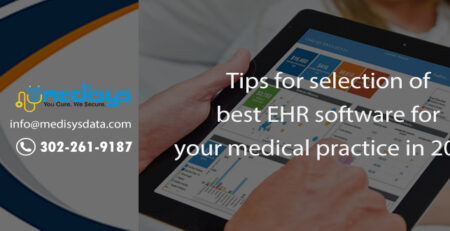Tracking, overseeing, and managing the entire revenue cycle of a hospital is known as revenue cycle management. A hospital’s income cycle is universal. You can choose to effectively manage it or not. It would be similar to not caring for your body if you didn’t manage your revenue cycle. Even though you may believe everything is alright, you are probably losing money and misusing your time. Mismanagement of your revenue cycle will have devastating effects for a hospital if it is ignored for an extended period of time.
Here’s a mind tickler for you!
Most executives in the healthcare industry are aware of the value of patient leakage management. However, after investing millions of dollars in their services, they continue to lose clients to rival businesses. There is no room for doubt. Your revenue cycle is either well-managed or poorly-managed.
It’s crucial to avert the issue as soon as you can. Problems with the revenue cycle won’t go away if ignored. If hospitals want to regain control over their revenue cycle, they must decide which healthcare revenue cycle management actions to take. We will outline how to stop revenue leakage later on, but let’s first look at some potential revenue cycle issues.
1. Billing mistakes
The main source of revenue leaks for the majority of consulting firms is this one. Billing problems can manifest itself in a variety of ways, many of which are the result of poor invoice administration, including underpaid invoices, unsent invoices, inaccurate invoices, missed milestone payments, etc. Money frequently floats around without a reliable invoice management system, and human entry errors may let revenue slip through the gaps.
2. Timekeeping mistakes
The worst scenario for project managers is having their consultants estimate the amount of time they spent on a finished project. Missed income from hourly contracts results from estimation errors or improper time tracking. If your time tracking is off with project-based contracts, you can find yourself making much less each hour. Then there are the extra service hours that you put in over what is permitted by your contract, which frequently go unaccounted for and unpaid. Until a clear procedure is established and followed, time tracking errors pose a revenue leakage concern for firms of all sizes.
3. Mistakes in data entry in general
Data entry errors across the board, whether with contracts, budgets, or anything, can generate little income leaks that go unreported except from the devastation they wreak on billing and time tracking. Accidentally entering incorrect data might also have a detrimental effect on how profitable your initiatives are. For instance, you might have to pay the additional costs resulting from the leak if your project budget was recorded erroneously and no one discovers it until the work is underway.
4. Errors in contract renewal
Particularly with IT services, poor contract administration can result in revenue leaks. Businesses may lose money if a client stops paying them because they forgot to renew their contract.
How to stop revenue leakage?
There are scores of measures that can cause the drips that are leading to loss of your profitability. Every hospital experiences some sort of revenue leakage, which results in a loss of considerable income and profitability. You already have plenty to worry about, from rivalry to emerging trends, so stop worrying about these process and system problems. Can you, however, afford to ignore it?
Here are several methods to halt revenue leakage from your hospital and make the profit and loss statement look more promising than ever after studying the typical revenue leak points in a hospital. Let’s jump right in, shall we?
1. Process optimization
Even before the patient’s revenue cycle starts, there can be incidents that result in revenue leakage. Providers run the risk of payors rejecting claims immediately away if staff members enter patient and health insurance information inaccurately. Making errors when adding line items for services provided and equipment utilized to claims further increases the likelihood that a claim will be denied.
2. Outsourcing RCM and AR
Consider outsourcing your revenue cycle and receivables management if your healthcare firm experiences revenue leakage. Clinicians can concentrate on providing care while others take on the responsibility of limiting losses when they collaborate with an RCM business like Medisys Data Solutions.
The primary sources of income leakage for your company can be found by using RCM firms’ experience and analysis of your processes and data. RCM firms give insight and services that aid providers in minimizing losses, from insights exposing how to optimize the follow-up operations for accounts receivable to renegotiating payor contracts due to persistent underpayments.
3. Big data analysis
Big Data Analysis is the term used to describe large data sets that have been gathered from many sources and reveal trends and patterns but are too complex to be processed by a regular computer. Big data analytics can be used by providers to alert them to oversights that lead to revenue leakage and find fresh ways to get paid.
Big data analytics enables service providers to compile reports highlighting problems like:
- Inaccurate insurance data
- Payor reimbursement adjustments and underpayments for comparable services
- Consistent claim denial factors (e.g., incorrect codes)
4.Improving Services
Building customer loyalty and gaining additional patients through word-of-mouth advertising can be accomplished by enticing customers to seek out in-person therapy once more and keeping them involved in the treatment process. Although these strategies can undoubtedly increase healthcare revenue, providers should also work to improve their services.
5. Bid adieu to the underachievers
It is important to identify non-performers—whether they be persons, machines, or materials—give them a chance to succeed, and in the event of failure, replace them. Nobody works for free at your hospital; you are required to pay a salary, which is money. Spend it on the appropriate personnel and resources. Ask your HR department to create your appraisal system so that you can distinguish between contributors and non-contributors with accuracy. Be prepared to occasionally make tough judgments.
Wrapping Up
Healthcare companies don’t have to fly solo, which is wonderful news. Healthcare organizations don’t have to handle revenue cycle management on their own. If your hospital is losing money, think about using conversion software from a third party. Numerous consulting firms, revenue cycle professionals, and healthcare software development firms have made it their business to work with healthcare systems to concentrate on revenue cycle management.
The quality of care your patients receive is ultimately what matters. Patients who feel they have received subpar care will not remain with a facility. And you cannot anticipate a robust referral network if your company has a developing reputation for providing subpar service. To find the answer, ask yourself if you are aware of these flaws in your system. Are you aware of the steps you can take to close the gaps? More importantly, how do you judge the strength of your network, and how do your patients? You may identify these gaps with the aid of Medisys’s patient experience management solution, which will lead you to the source of the issue and put you on the path to recovery. Are you in? Because we have our team ready!












